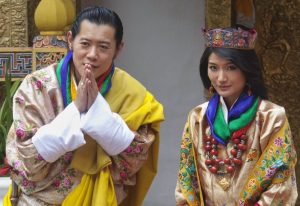
On 20 March, my wife and I flew from Bangladesh to Hong Kong. I was scheduled to continue my doctoral studies at The University of Hong Kong (HKU), but the journey’s mood was dampened by the ongoing COVID-19 pandemic, a deadly and infectious respiratory syndrome that has spread globally. I was supposed to return to Hong Kong in the last week of January, but HKU had advised me to delay my journey, given the evolving situation in the city. We decided to remain in Bangladesh, but in early March, COVID-19 began spreading to Bangladesh. As a densely populated country, Bangladesh faces significant challenges in combating COVID-19.
My family expressed their concerns for our well-being, calling us many times. While waiting at Dhaka’s Shahjalal International Airport for our flight to Hong Kong, we maintained social distancing and waiting anxiously, our mouths and noses covered by face masks. We cleaned our hands with sanitizer every 20 minutes. The day before our arrival in Hong Kong, the government issued a mandatory 14-day quarantine order for all residents who had come from abroad to Hong Kong.
Arriving at Hong Kong International Airport, officials placed wristbands on our arms and instructed us to download the “Stay Home Safe” app to our smartphones. Upon reaching Graduate House at HKU, our temperatures were measured and after clearance, we retired to our room. We sighed and prepared ourselves for 14 days of home quarantine.
ALthough we had planned to watch movies and television to alleviate our anxiety and fear of COVID-19, we instead watched meditation videos and listened to guided meditations for people spending extended periods in isolation. There were plenty of instructional videos on YouTube, which were relatively easy to follow and made our days more comfortable compared with the first day of our quarantine period.
As a former monastic, I have considerable experince in practicing mindfulness meditation, and I provided some guidance for my wife, who is new to the practice. I taught her that mindfulness is a technique used in many meditative spiritual traditions, Buddhism included, and it is now a dominant concept in the fields of health and psychology, and popular among modern physiologists, neurologists, and physicians as it offers numerous benefits, such as stress reduction, deep relaxation, and more positive states of mind.
On YouTube, we followed the instructions of Upul Nishantha Gamage, a meditation teacher at Nilame Buddhist Meditation Centre in Nilambe, Sri Lanka. He conducts workshops and meditation retreats in hospitals, prisons, schools, monasteries, and private residences. He frequently travels to conduct meditation retreats in Europe and other parts of Asia, including Hong Kong.
Acting upon Upul’s instructions each morning and evening, we sat comfortably, relaxed our bodies, and kept our eyes closed throughout the meditation session. We brought our awareness inward. We practiced paying attention to the natural breath, its incoming and outgoing at the entrance of our nostrils, without trying to change the flow.
Although our meditation sessions were relatively short, it liberated our minds from problems such as anxiety and laziness for the time being. Through the regular practice of this meditation, we were also able to enhance our concentration and memory, and cultivate self-confidence and greater efficiency in the work we could do.
We also practiced loving-kindness meditation (metta bhavana), which increases our capacity for forgiveness and helps us to build stronger connections with others. We meditated on loving-kindness by sending love and warm wishes to ourselves, then to the other residents of Graduate House and students on campus, before extending such feelings to all people in Hong Kong and all sentient beings in the world, wishing silently: “May you be free from all dangers, may you be free from all dissatisfaction, may you live peacefully!”
Following Upul’s instructions, we learned that the essence of loving-kindness meditation was focusing on warm-hearted, loving energy in oneself, then channelling it inward for oneself and radiating it outward toward others.
Each day of home quarantine, we also practiced long periods of chanting, paying homage to the Buddha, the Dhamma, and the Sangha, and offering lamps and water to the Buddha in our room. We mostly chanted the Ratana Sutta (the Jewel Discourse) which extols the characteristics of the triple gem: the Buddha, the Dhamma, and the Sangha.
The background story for the Ratana Sutta is as follows: the town of Vesali in present-day Bihar, India, was a very prosperous city during the lifetime of the Buddha. With the passage of time, there was a drought and the fields failed to produce enough food. At first, the helpless, deprived people started starving to death. Their bodies were thrown out of the city. Many began taking refuge inside the city because of the stench of the dead bodies outside. In time, so many people had died that it became impossible to bury the dead. The sight of the rotten, stinking corpses aroused terrible hatred and panic, and this collapse of order and civil spirit caused the outbreak of serious disease in the city. Fearful of the three kinds of famine, disease, and harassment, the people of Vesali were terrified and came to the Buddha for aid. The Buddha then called upon his disciple the Venerable Ananda to go through the town, reciting the Ratana Sutta to disperse the town’s woes. Today, Buddhist sanghas in countries in which the Theravada tradition is practiced still regularly recite the Ratana Sutta. Our families from Bangladesh also reminded us to recite the Ratana Sutta every day and to share the merits with all sentient beings.
Eventually, our 14–day home quarantine concluded. The practices we performed during this period helped us to understand and change ourselves for the better, as we are now increasingly occupied and stressed in our day-to-day lives. Consequently, since completing the quarantine, my wife and I have continued to practice meditation, including mindfulness-of-breath meditation, in our residence, every day for half an hour each morning.
Mindfulness meditation helped us to deal with anxiety and stress during our quarantine and I now recognize that practicing meditation is very helpful during this era of COVID-19. It is beneficial because, with practice, we can think more positively in daily life by taking a mental break to calm and focus ourselves. This should be accompanied by an outlook of hope and meaning that fortifies our relationship with ourselves, and renews our sense of balance and emotional connection with our families and others.












